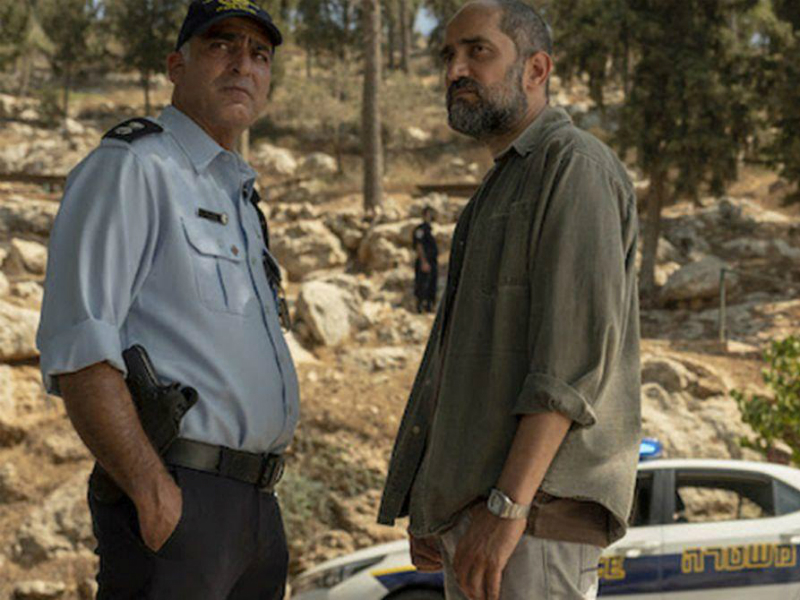It is inevitable that comparisons will be drawn between HBO’s new miniseries Our Boys and Netflix’s running hit Fauda.
Both are darkly lit Israeli dramas; both highlight lesser-known military units; both sympathize with Arabs and Israelis, showcasing the ugly actions of the latter alongside the repressive restraint of the former. (Viewers will even notice that the same cast members pop up in similar roles. Israel is, after all, a pretty small country.)
In competition with Netflix and Amazon for the loyalty of global streaming audiences, HBO is vying for original programming in competitive genres. To the network’s credit, its gambit has always been fewer shows of higher quality. While Fauda (which is not created by Netflix, but merely distributed by it) is better than most of the bargain-basement dramas on its streaming platform, HBO sticks to the formula here: Our Boys is simply better produced, better directed, better acted and better overall.
Granted, the comparison is a little unfair. Fauda is flashy fiction, whereas Our Boys recounts the true story of the lead-up to the 2014 Gaza conflict. It’s closer to a docudrama than a retelling. The story masterfully contextualizes common clips of the senseless violence that most of us caught on social media and TV, forcing us to reconsider who, if anyone, is to blame for it.

The 10-part structure makes Our Boys feel less like a show than a movie interrupted by hourly cliffhangers. This is generally good, unless you start watching the first episode when you’re a bit sleepy, because the directors have to pace out the whole thing cumulatively and methodically, building the narrative with the slowest of burns.
The first episode – which tracks the immediate aftermath of the disappearance of three Israeli teenagers – is kind of boring until maybe 30 minutes in, banking instead on built-in dramatic irony to keep audiences hooked. It only kind of works. Viewers with less knowledge of the situation will probably zone out.
But by the first episode’s chilling climax, all that changes. The plot sharpens into focus as another teenage boy goes missing, this time a young Palestinian, presumably kidnapped by vengeful extremist Jews. In the second episode, the playing field is levelled for viewers of all stripes, as the Palestinian boy’s family takes centre stage in the middle of a brewing national eruption.
Suddenly, mirroring the Israeli reaction after the initial three boys disappeared, the Palestinian family’s pain and requests are swiftly overwhelmed by a rabid public that takes to the streets, using the news as an excuse to vent their frustrations.
READ: KAY: HOW FAUDA MIGHT HELP TO BRING PEACE TO THE MIDDLE EAST
In these scenes, show creators Hagai Levi, Joseph Cedar and Tawfik Abu-Wael display admirable sensitivity toward innocent Palestinians. Israeli police treat the disappeared Palestinian boy’s father especially cruelly, patronizing and quarantining him while the outside world burns. The father, played with tragic realism by Jony Arbid (also from Fauda, in a much less meaty role), grows exasperated by isolation and false accusations. “I don’t care about politics. I work with everyone: Jews, Arabs, it doesn’t matter to me,” he pleads to his captors. “You’re asking me all these irrelevant personal questions.”
Indeed they are, and watching his misguided interrogation is gripping television. The audience lucidly understands both sides: after all, how can the Israelis trust the father? How do they know his son didn’t run off and join a terrorist organization?
Compare this with Fauda, where one character does something stupid and extreme, igniting vengeance from the opposing side, and the rest is a one-upping of explosions and espionage.
Don’t get me wrong: Fauda is wonderfully entertaining. But if you want your Israeli entertainment with a side of geopolitical and racial insight, Our Boys is not to be missed.
Our Boys debuts in Canada on Crave on Aug. 12.
